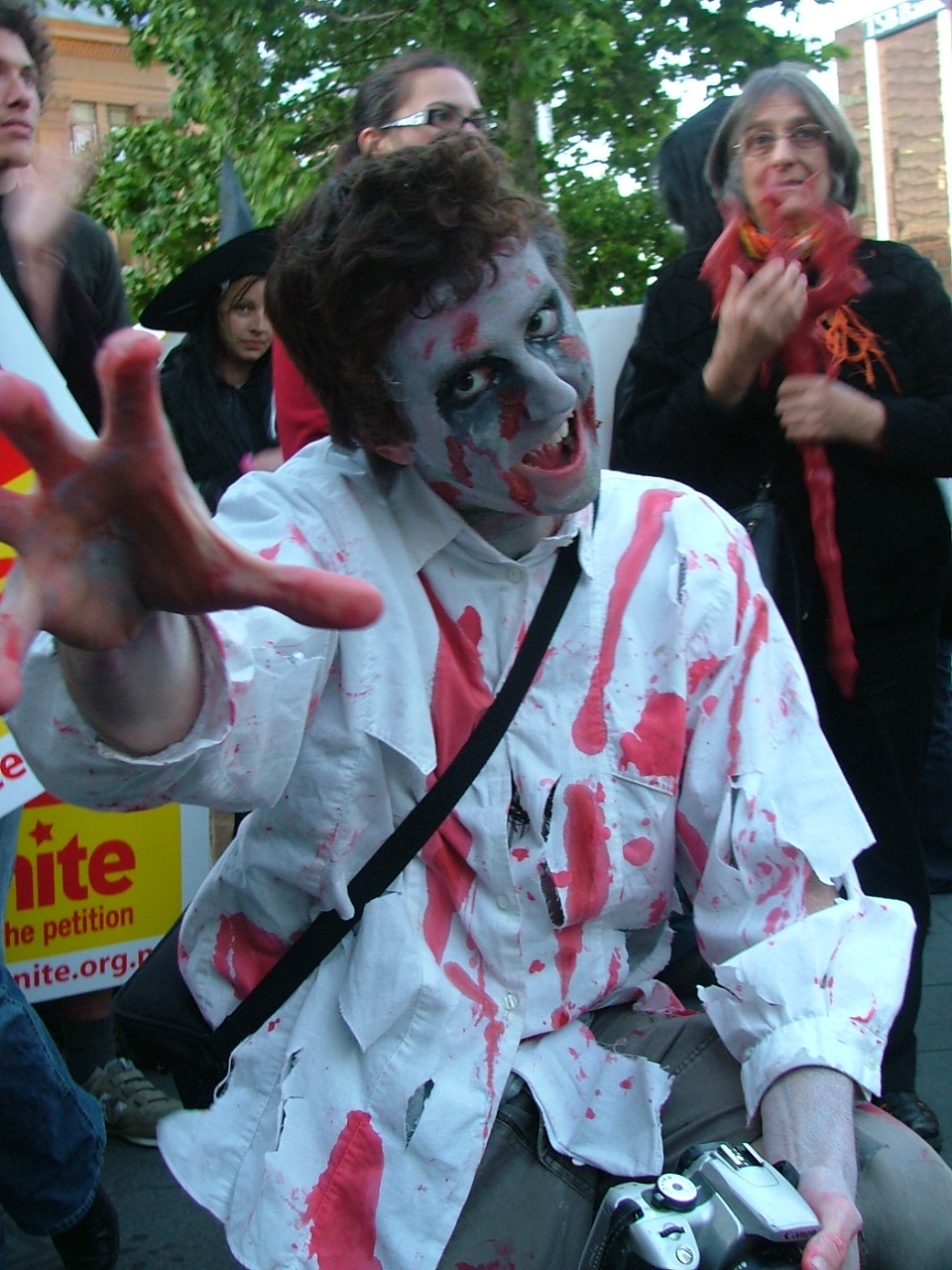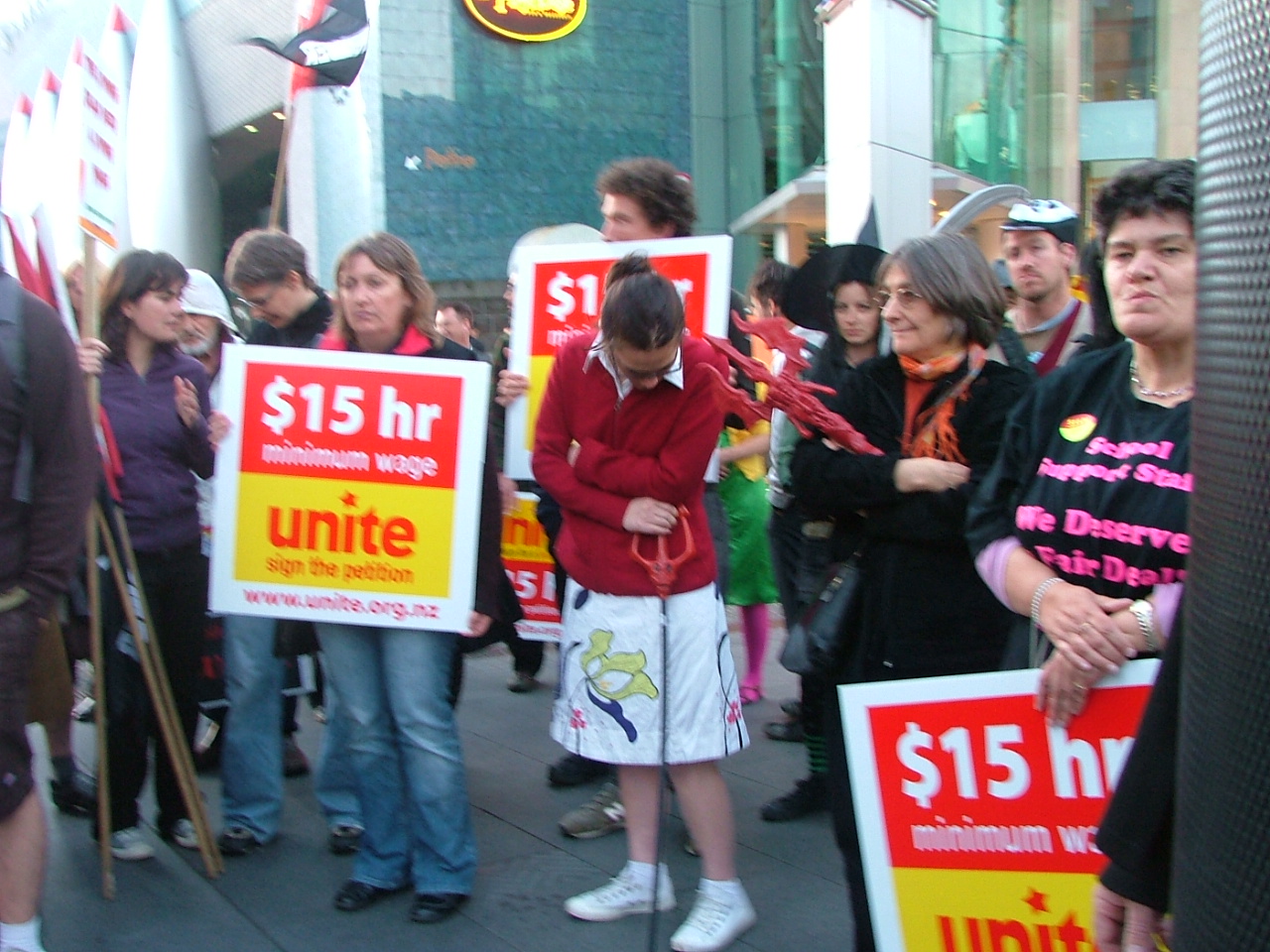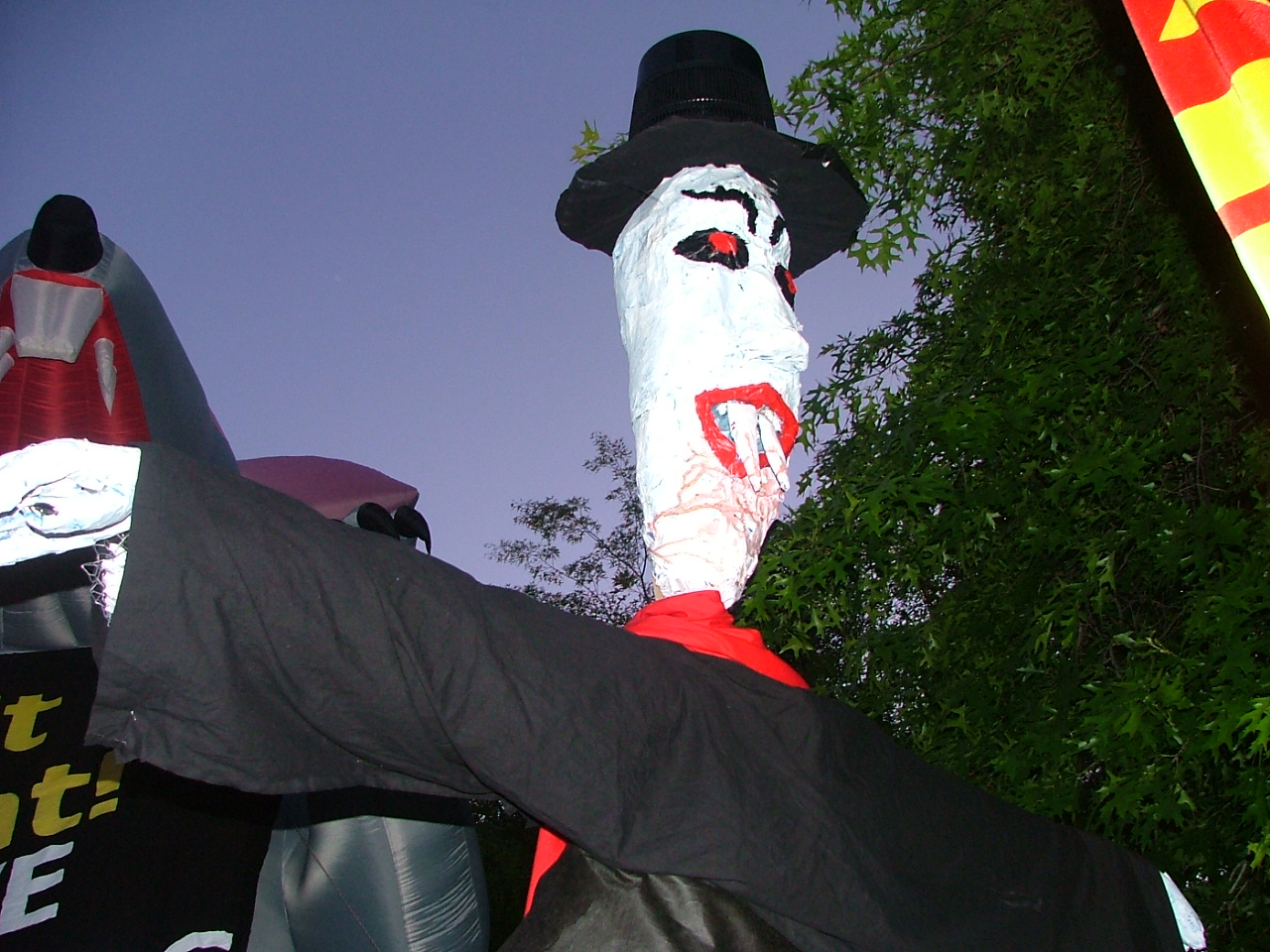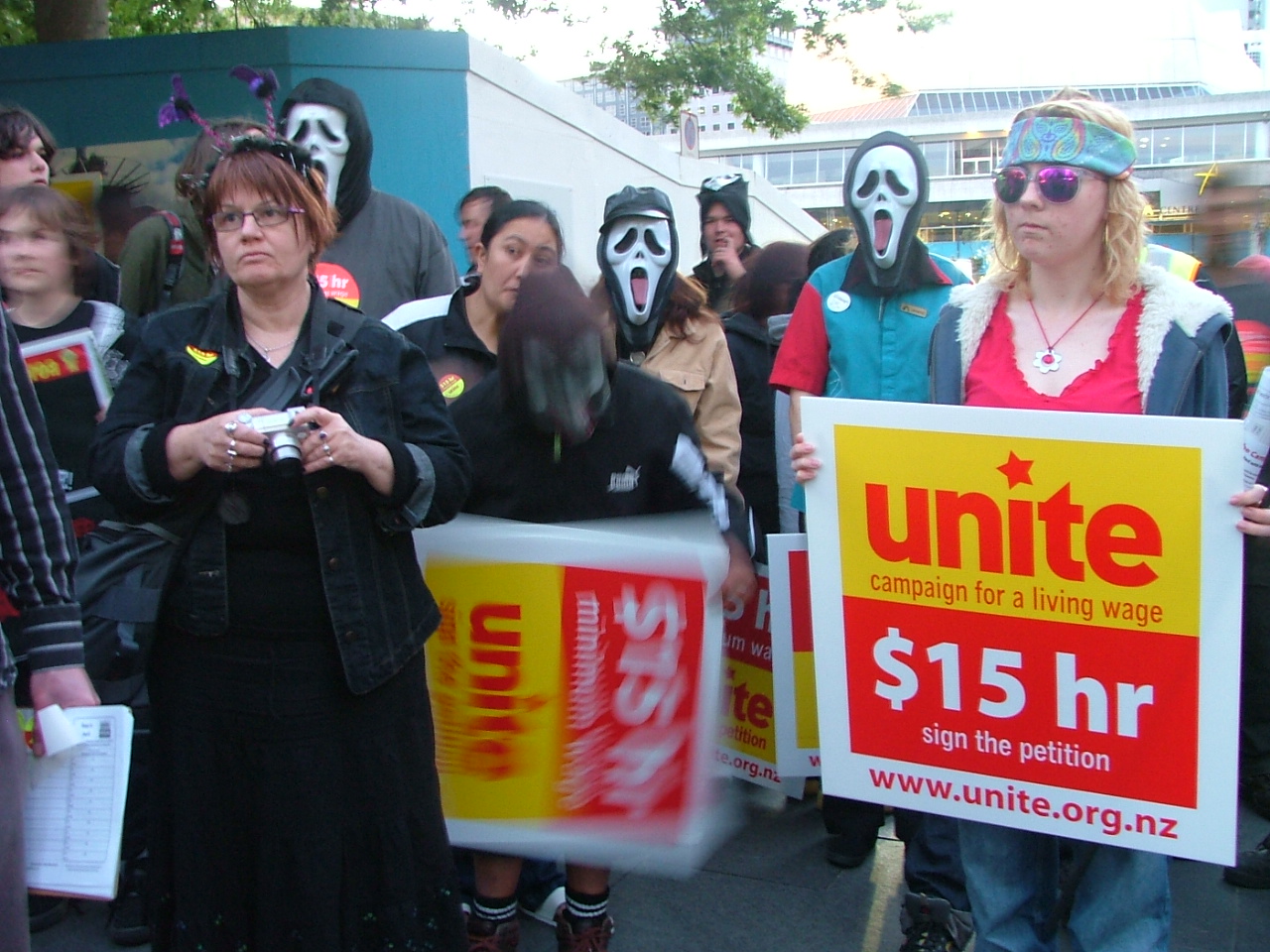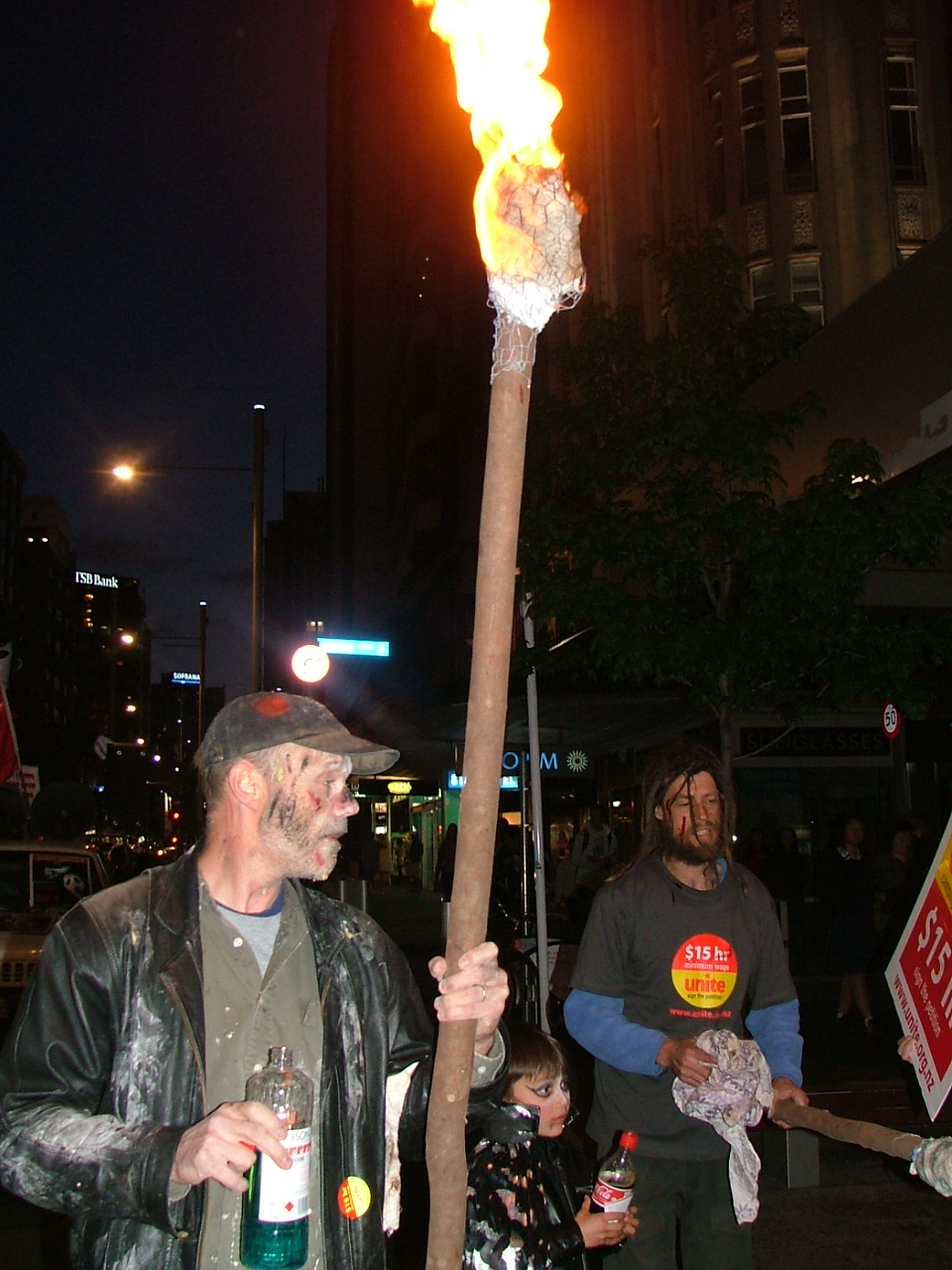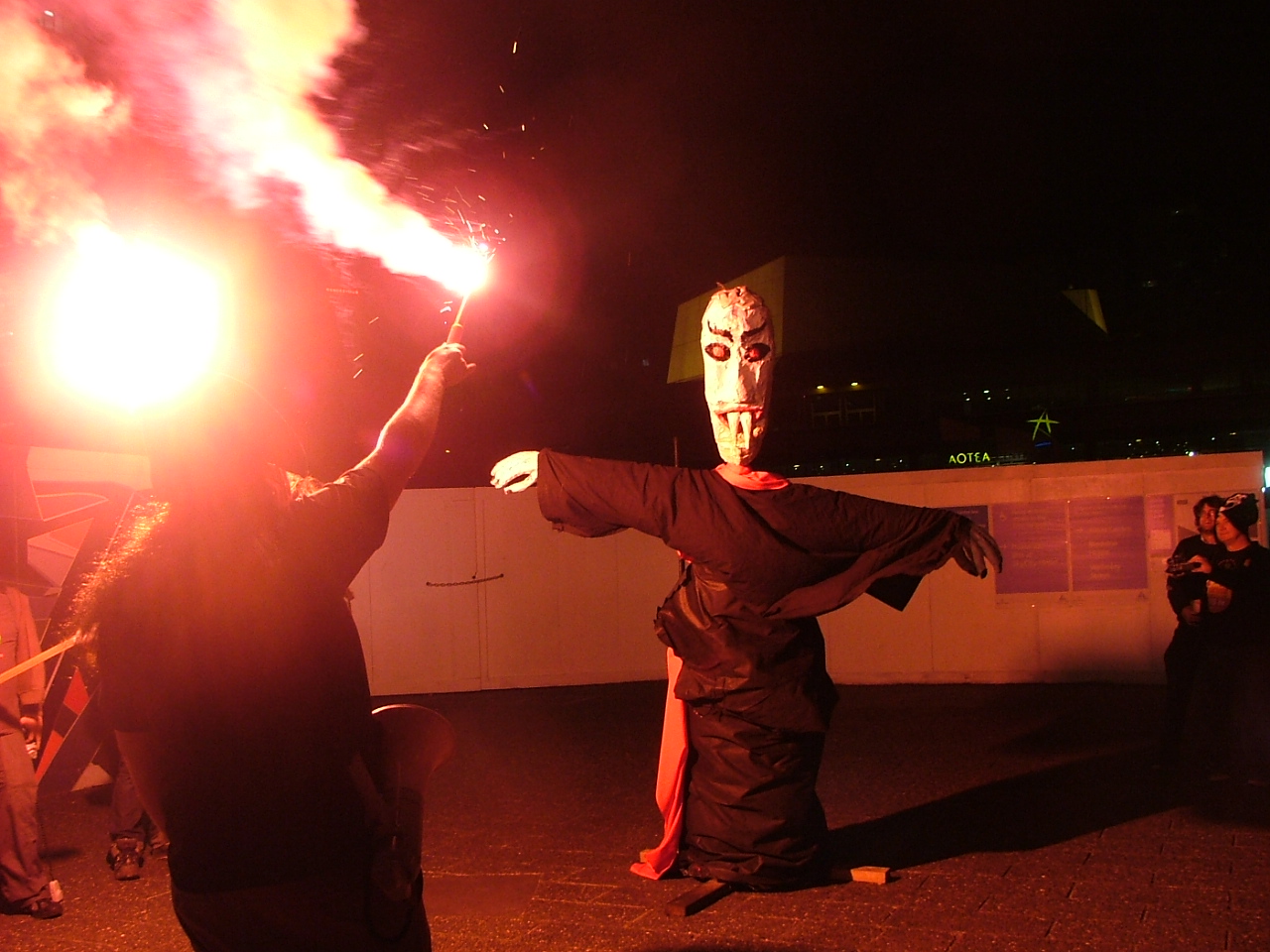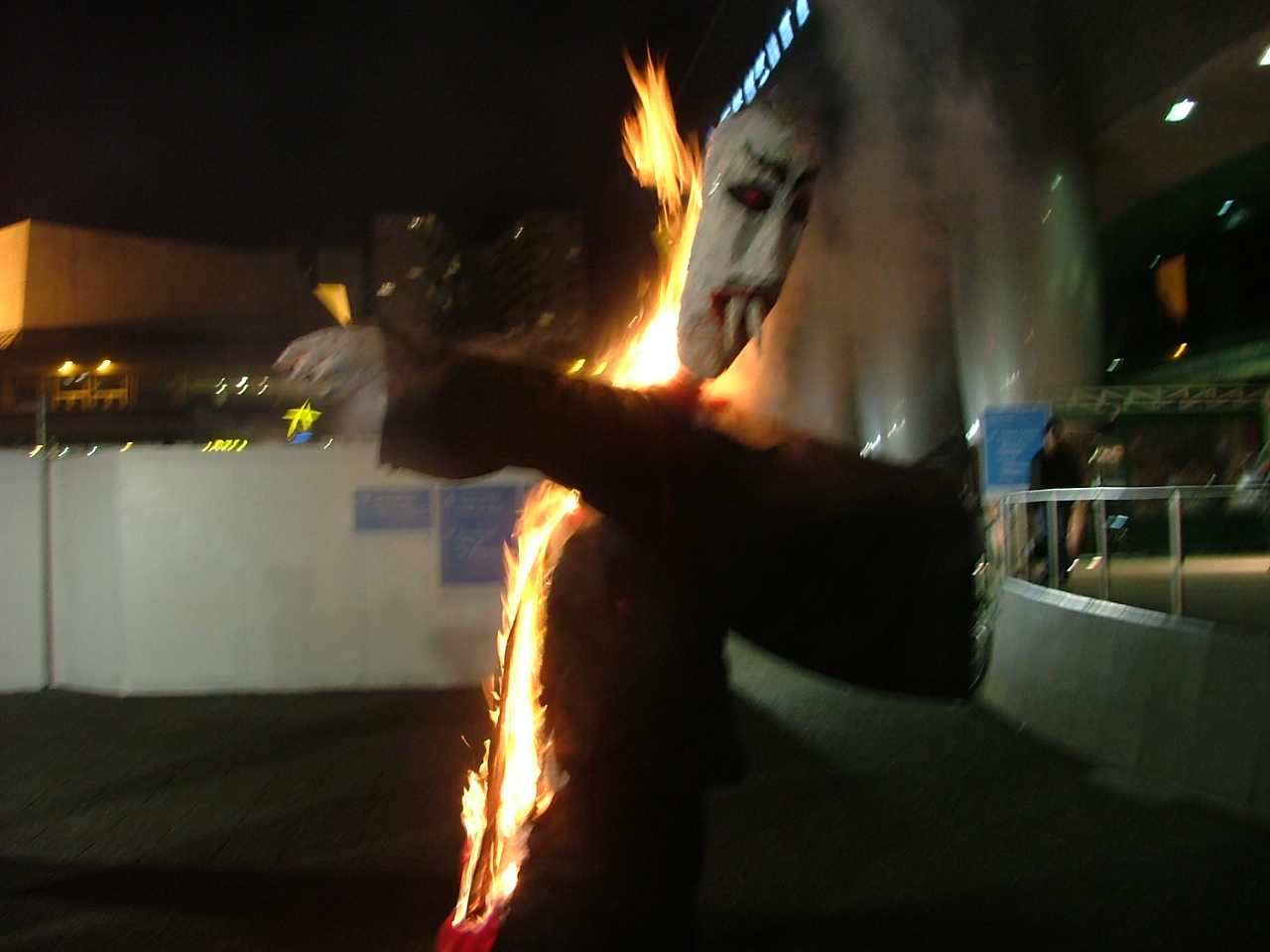Byron Clark
The Spark August 2010
The Fiji Mineworke rs Union is currently seeking a resolution to one of the worlds longest running industrial disputes, over 340 workers have been on strike in the town of Vatukoula since 1991. In the 19 years since the strike began, the mine was closed (in 2006), sold, and re-opened under the ownership of another company, at which point none of the striking miners were re-hired. In recent times, gold production and sales have surged in Vatukoula while the former Emperor Gold employees continue to seek redress for their grievances. The miners continue to live in company housing and picket the mine regularly. The Spark examines the role the town of Vatukoula has played in Fiji’s labour history, and the exploitation of workers and the environment by multinational mining companies.
rs Union is currently seeking a resolution to one of the worlds longest running industrial disputes, over 340 workers have been on strike in the town of Vatukoula since 1991. In the 19 years since the strike began, the mine was closed (in 2006), sold, and re-opened under the ownership of another company, at which point none of the striking miners were re-hired. In recent times, gold production and sales have surged in Vatukoula while the former Emperor Gold employees continue to seek redress for their grievances. The miners continue to live in company housing and picket the mine regularly. The Spark examines the role the town of Vatukoula has played in Fiji’s labour history, and the exploitation of workers and the environment by multinational mining companies.
A Company Town
Gold was first discovered in the Vatukoula, in the north of Viti’ Levu by an Australian prospector in 1932, and the establishment of a mine by an Australian mining company, Emperor Gold Mining, followed soon after. Still a British colony, Emperor Gold practised what the Fiji Times has labelled “colonial-style mine management”. In a thesis submitted to the University of Vermont, Mary Ackley outlines what this means: Continue reading “Vatukoula's 19-year miners strike”
Industrial disputes
The Spark August 2010
RENDEZVOUS HOTEL LOCKOUT
Housekeepers at the Rendezvous Hotel in central Auckland had been faced with the same trick by management every time collective bargaining came around: the company invariably delayed the settlement, cheating the workers out of months worth of back pay.
This year the company’s offer was 1.5% to cover them until June 2012 (the workers had got nothing last year), and the bosses also wanted to take one day’s sick leave entitlement off them. The workers, members of the SFWU, responded with a one day strike on the day that a big conference was being held at the hotel. The company retaliated with a lockout of the workers that lasted 13 days.
The union challenged the legality of the lockout in court, but lost that battle. The dispute was finally settled at mediation with an increase of 25c per hour (the equivalent of just under 2% for most of the workers), the term of the agreement was reduced to one year and the workers retained their sick day. The expiry of the current Collective Agreement is well timed to coincide with the Rugby World Cup. Continue reading “Industrial disputes”
Don't get caught in a bad hotel
[youtube=http://www.youtube.com/watch?v=-79pX1IOqPU&color1=0xb1b1b1&color2=0xd0d0d0&hl=en_US&feature=player_embedded&fs=1]
Christchurch: Living Wage Picket Organising Meeting
The Workers Rights Campaign is holding a meeting this Monday (the 8th) to organise a picket of an MP’s office on Saturday the 13th as part of the nation wide day of action protesting the pitiful 25 cent increase in the minimum wage and demanding a living wage now! (see Facebook group)
At this meeting we will decide what office to picket, what time, and also organise a placard painting day later in the week as well as some signature collecting for the petition that can also be used to advertise the picket.
7:30pm, Monday the 8th
WEA, 59 Gloucester St (map)
POVERTY WAGES – THE CHALLENGE OF HISTORY
Don Franks
The 25 cent government increase in the minimum wage from 1st April was denounced by union leaders as “a cheap shot’ and “mean.”
The increase to $12.75 from April 1st, 2010 is an annual increase of only two per cent. The NZ Institute of Economic Research inflation forecast is 2.3 per cent for the year to March 2010 and the average wage rose 2.8 per cent in the six months to September 2009 alone. That suggests the lowest paid workers are going to be relatively worse off than they are already. Continue reading “POVERTY WAGES – THE CHALLENGE OF HISTORY”
Industrial activity review for 2009
The following article by Mike Kay overviews industrial activity in New Zealand in 2009 and summarises some of the highlights.
Overview
The Statistics NZ Survey of Working Life (March 2008) identified 30.1% of all employees as union members. Female employees were more likely to be union members than males (33.0% and 27.4%, respectively). Only 17.4% of casual employees were unionised. By industry, union membership was highest for those who worked in education (58.5%), health and community services (52.0%) and other services (42.8 %). Professionals (46.1%) and those who worked as plant and machine operators and assemblers in their main job (41.5%) had the highest level of union membership.
There has been a strong downward trend for work stoppages in the recent period, by every measure:
 Source: Statistics NZ Work Stoppages: June 2009 quarter
Source: Statistics NZ Work Stoppages: June 2009 quarter
Although the year to June figures excludes a number of recent major disputes towards the end of 2009, they represent the lowest number of stoppages in 18 years. The transport, postal and warehousing industry was responsible for most stoppages, significantly ahead of the next most militant sector, manufacturing. Undeniably, we are still in the midst of a protracted downturn in the class struggle, although some notable exceptions to the trend may point the way to a revival of militancy in the coming year. Continue reading “Industrial activity review for 2009”
Say no to 90-days of fire at will!
 Picket outside ‘Positive Airflow Limited’ call centre on Wednesday 9th December, Home Street (behind Kent Terrace), Wellington at 12.30pm.
Picket outside ‘Positive Airflow Limited’ call centre on Wednesday 9th December, Home Street (behind Kent Terrace), Wellington at 12.30pm.
Positive Airflow are responsible for taking calls and advertising for HRV, the kiwi owned Heat Recovery Ventilation company, they are also responsible for sacking staff under the new 90 day ‘fire at will bill’.
A Unite member who had previously worked full time in the fast food industry contacted her union organiser and told the story of how she was fired, with no explanation and only 7 days notice. She had quit her previous full time job and now finds her self in the cue at the WINZ office as a direct result of the National backed anti worker bill.
It has since come to light that this isn’t a one off at this site with a number of people coming forward with similar stories – some have been sacked with no notice at all!
This kind of practice can not be tolerated. Unite will be holding a picket outside the premises and will make sure that the company’s neighbours and wider community know that this is NOT a good place to work. Come and help us make some noise!
Open Country Cheese workers took heroic stand
The Spark November 2009
Jared Phillips
The lockout of Talleys-owned Open Country Cheese workers came to an end in late October 2009 after a legal and industrial struggle waged by the Dairy Workers Union (DWU) and its members.
The Open Country Cheese site is a self-contained dairy factory in Waharoa, a few minutes drive north of Matamata in the Waikato. The lock-out came after strike notification by the DWU. In other words, the employer issued the lock-out notice before the strike had officially begun, and marched workers off the site in mid-late September. Continue reading “Open Country Cheese workers took heroic stand”
“Burn the vampire bosses”
On the eve of Halloween there was a carnival atmosphere as people marched up Queen Street Auckland.
The march was part of Unite’s campaign to get 300,000 signatures on our petition for the minimum wage to be raised to $15 an hour. If that target is reached by May next year the government will have to hold a referendum on the question of whether the minimum wage should be lifted to $15 an hour.
A vampire boss effigy was burnt at the stake, to cap off the night.
Lockout Over, Cheese Workers Win Collective Agreement
Media Release: Dairy Workers Union
The month-long lockout of workers at Talleys-owned Open Country Cheese is over after workers have secured their goal of collective employment agreement to cover their jobs.
“The members of our union at Open Country Cheese have stuck together right through this very difficult dispute,” Dairy Workers Union National Secretary James Ritchie said.
“All that these workers wanted was some basic job security through a collective employment agreement and they were illegally locked out for standing up for their rights.”
The company’s restructuring at the plant greatly reduced the number of positions available and a confidential settlement was reached for workers whose jobs have disappeared, he said.
“The workers were buoyed on by the very strong support of the Waharoa and wider Waikato community, and the solidarity of the union movement. Their stand for fairness at work shows that workers are stronger when they act together in unions,” James Ritchie said.

